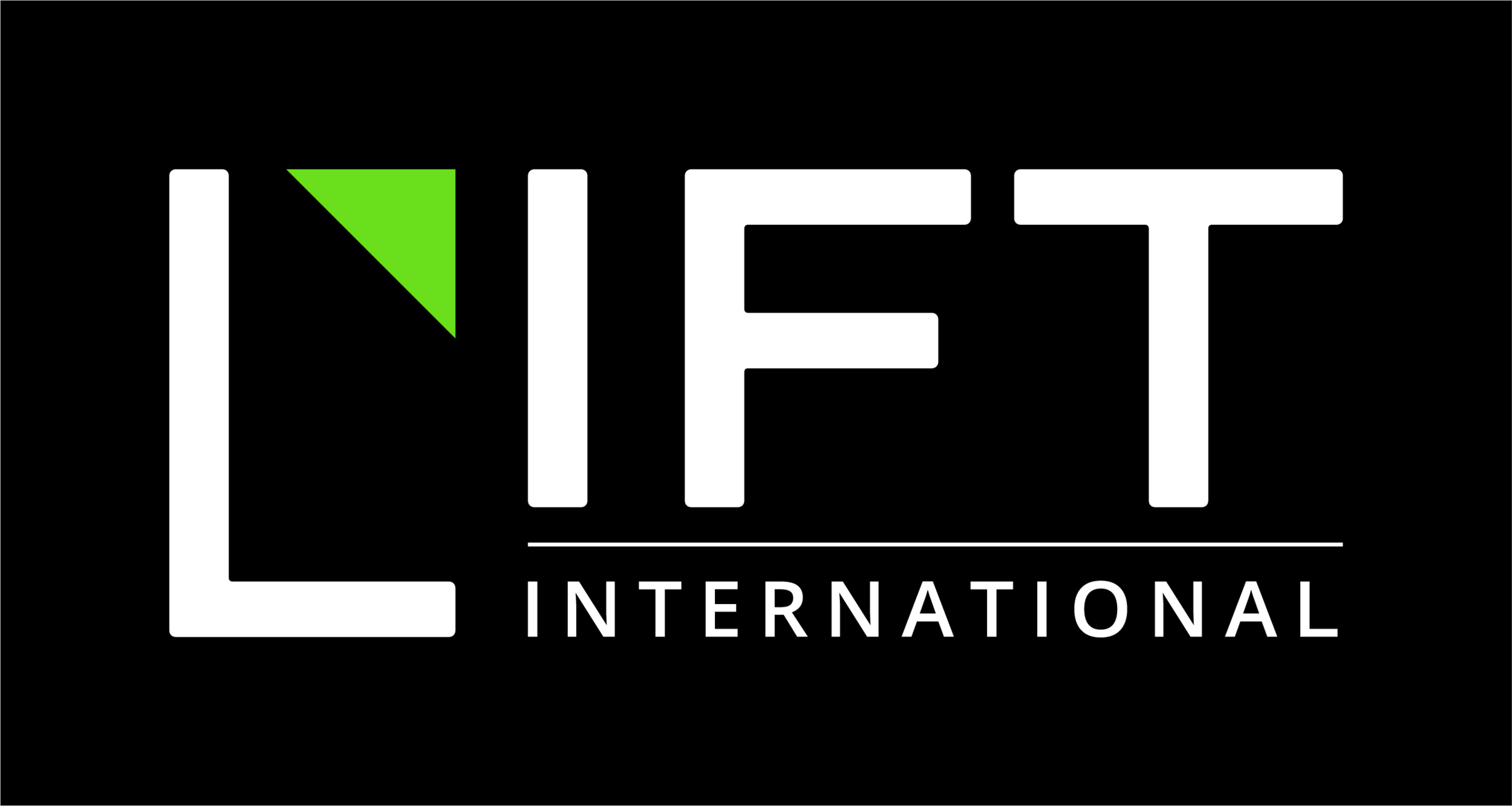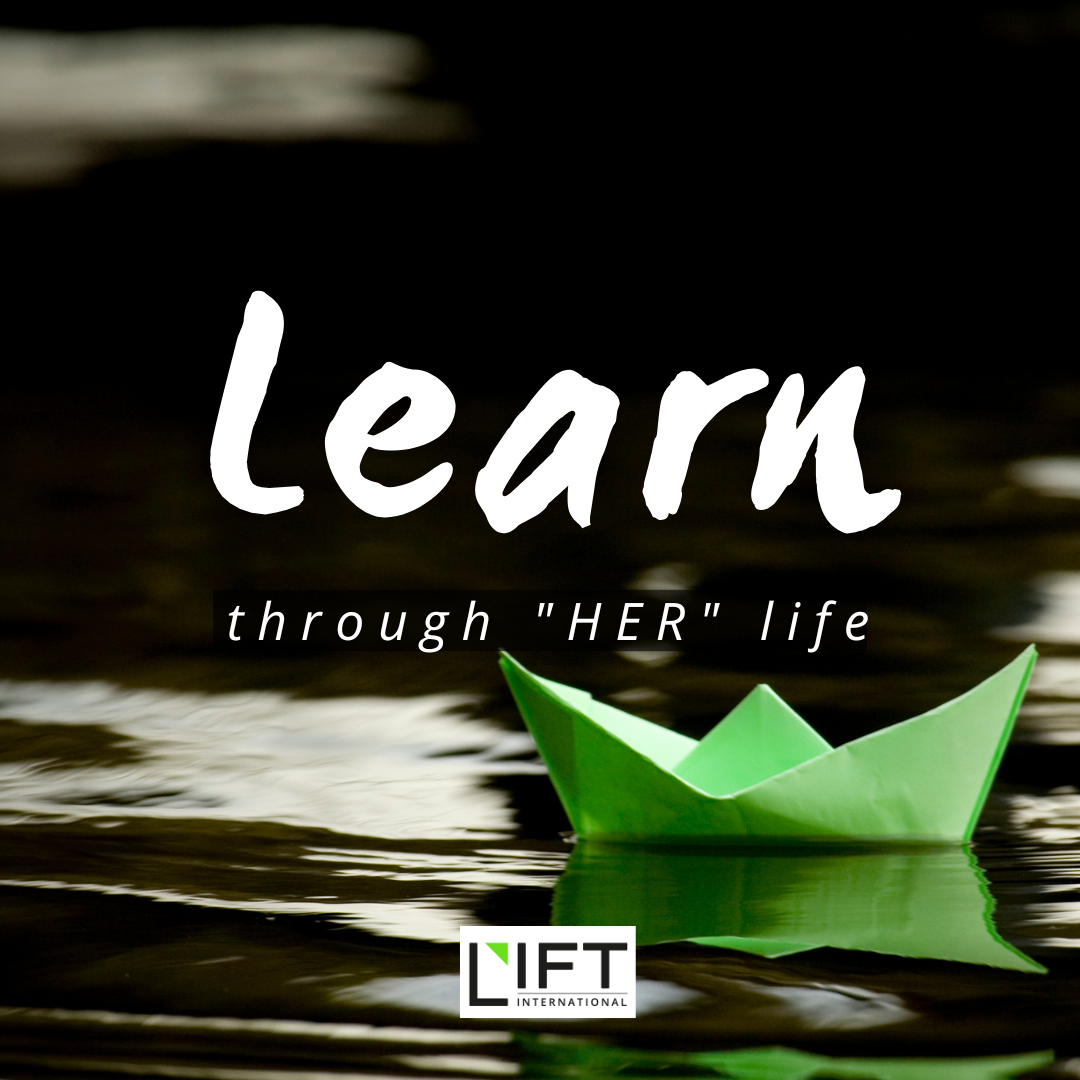"Learn" Through “Her” Life
From this story, “LEARN” is a part of a special written series titled "LIFE / LEARN / LIFT," where we aim to inspire individuals who have dedicated themselves to making a difference in this world and liberating countless lives from the horrors of human trafficking.
Success in assisting survivors is not an overnight achievement; it's difficult to measure the impact in a short period of time. The lesson we've learned from our former survivor is that LIFT serves as the "best classroom" for members, enabling them to overcome obstacles with resilience. At LIFT, we've witnessed firsthand how our dedication to uplifting survivors' lives also uplifts the hearts of our staff and organization.
(Click here to read previous survivors' stories: “Fai’s story“ and “LIFE: Seeing through her eyes”)
* The names of the characters and places in this story are not their real names, but they are inspired by the true story of a survivor whom LIFT assisted.
In this story, we extracted our experiences from assisting this former survivor. This case is an interesting one as it encompasses the various dimensions of traditional sex trafficking. The agent deceived a girl and her family by promising a well-paid job, but in reality, they deliver her into the hands of traffickers involved in the sex industry. The girl, who is now a victim, was detained, had her identification documents seized, faced illegal debt conditions, was abused, and forced into prostitution. It's unbelievable that these familiar stories still exist in modern-day slavery, albeit in different forms and tactics, such as scams on digital platforms or transforming from a karaoke bar to live-streaming performances.
We truly believe that our learning journey throughout the past twelve years will empower participants to solve problems and understand the core attitude of anti-trafficking work, leading them to find the effective tools and strategies to combat the tactics used by perpetrators.
Social Workers' Lessons Learned: There Is No Set Formula for Helping Survivors
Chu (Chutinate Arsakit), Head of Social Work at LIFT
“That day, I received an urgent call to meet a survivor immediately because she needed assistance in preparing to give testimony in court in the next few days. During our first meeting, I couldn’t imagine how it would unfold, even though I had the case file in my hands.”
For social workers, the most challenging time is the first encounter because it is not easy to gain a survivor's trust, especially when they have experienced trauma. The powerful tool to gain their trust is "listening without judging." When they sense a safe place, you can start building trust for "working together."
True listening involves respect, refraining from criticizing or using theory/experience as a paradigm for designing a formula for aftercare services that are suitable for everybody. Good listening skills enable social workers to understand the individual needs of survivors.
Furthermore, the survivor is the most crucial person to participate in designing a recovery plan, along with the consultation and empowerment provided by social workers. Deep listening also helps our organization ensure that the provided services match their needs and are considered in a victim-centric approach.
“My first meeting with Chu changed my perception of other social workers in my life. While other people asked me to retell my past, but Chu patiently listened to me without criticizing or judging. I vividly remember that feeling on that day when I felt like I had no one, and I shared the same experience with another girl in the community who faced a similar situation to my past.”
- Fai*,the former survivor who received our support 5 years ago.
“At the end, the survivor is the person who is most empowered, taking strides towards their own beautiful path in life that they have chosen.”
Legal experts' Lessons Learned: Justice That Protects Survivors' Trauma
Pik (Wirinyasinee Rinya), Head of the legal team at LIFT
“In the past, I was a fresh law graduate. I had no idea what trauma was until I witnessed a survivor faint in the courtroom. She could not cope with the overwhelming suffering caused by the traumatic memories recalled during the trial.”
Certainly, providing legal support for survivors throughout the prosecution process is one of LIFT's main tasks. We strive to ensure that justice is served and fairness is granted to individuals exploited by human traffickers. The success of a prosecution does not merely result from the hard work of legal experts in preparing the legal issues but also from their collaborative efforts with survivors in preparing their testimony. The survivor's testimony, which accords with the law , is a powerful tool for regaining justice. However, there are numerous challenges and pressures that survivors face during this time because it is hard for them to avoid recalling traumatic incidents.
Collaboration between an attorney and a social worker is of the utmost importance, particularly when observing changes in a survivor's mental state while giving testimony. If either the attorney or the social worker notices any concerning symptoms that stem from recalling traumatic incidents, they are authorized to speak to the judge and request a suspension of the trial. An individual experiencing trauma may experience symptoms like fainting, dizziness, tense muscles, or loss of control.
“When I stood before the throne of the court, my testimony was like a bullet, aimed at achieving justice. However, it also resulted in the pain caused by the friction I experienced during that time. I want to share these experiences to raise awareness among those involved in the justice system.”
The achievements of the prosecution's assistance in this case have been demonstrated through the significant compensation awarded, totaling 7,200 USD (250,000 baht). This amount of compensation is particularly noteworthy because it is several times higher than the average compensation awarded in sex trafficking cases nearly a decade ago. Moreover, the offenders were sentenced to imprisonment for trafficking, including the agent who destroyed her life.
In this regard, our legal experts adopt an approach that recognizes the importance of protecting individuals from possible re-traumatization while simultaneously seeking justice for them. This concept has led to the development of a legal working method that has been learned through cooperation with survivors. The aim is to establish this good practice as a means of raising the standards of the justice system in Thailand. This approach is designed to raise awareness about the scourge of trauma and its impact on the lives of survivors, just as it does with physical injuries or visible damages. Currently, our legal team has established working standards that incorporate the impact statement, written by the survivor, along with a mental impact assessment report from a psychology expert, as part of the evidence submission requirement. These additional documents serve as testimony to prove the mental damages resulting from trauma and advocate for fair compensation, particularly in cases of online sexual exploitation, which are increasingly prevalent nowadays.
Law Enforcement Support' Lessons Learned - Illuminating Hope at the End of the Human Trafficking Tunnel
Even though the assistance provided by LIFT in this case was in the form of legal and social work support, our team's involvement in investigating and analyzing information has enhanced our understanding of the components of traditional sex trafficking. This understanding is crucial as it helps us link these components to the evolving landscape of online human trafficking in the modern world.
Furthermore, our better understanding of the effects of trauma has been transferred and incorporated into the victim-centric approach followed by all LIFT teams. This is especially important for the law enforcement support team, as their investigation and crime analysis standards must address security concerns in order to protect survivors from further traumatization.
“Working in crime analysis can sometimes be stressful as I constantly strive to competitively discover important information and intervene to prevent perpetrators from committing crimes.
I understand that every minute counts in protecting vulnerable lives and preventing additional harm.”
For members of investigative and intelligence teams, their involvement in bringing justice serves as an inspiring source of motivation. It graciously transforms the lives of survivors and helps them find solace. Discovering the true meaning behind their work and witnessing the beautiful results is especially important for those who work at the initial stage of tirelessly searching for potential trafficking crimes. This motivation can fuel them to overcome the challenges because it's worthy to be the light of hope, leading survivors' lives from the darkness dead-end of the human trafficking tunnel to find a beautiful path for their lives again.
The organization's learning is crucial to observe from the outset, fostering ongoing development as we work towards the ultimate goal of our mission: to ensure freedom for the exploited, justice that protects, and a world in which human trafficking is not tolerated.
In the twelve years of LIFT International, we are grateful for every opportunity and the support that has allowed us to uplift the lives of survivors. Among them is Fai*, who can no longer be called just a survivor. She has become like a teacher to us, offering valuable insights and helping us gain a holistic perspective in our anti-trafficking work. We are committed to embracing every opportunity and harnessing our full potential to fulfil our calling of making God's expectations a reality. Our mission is to support vulnerable lives in regaining their dignity and freedom, and to help them rediscover the goodness that our work at LIFT represents.





